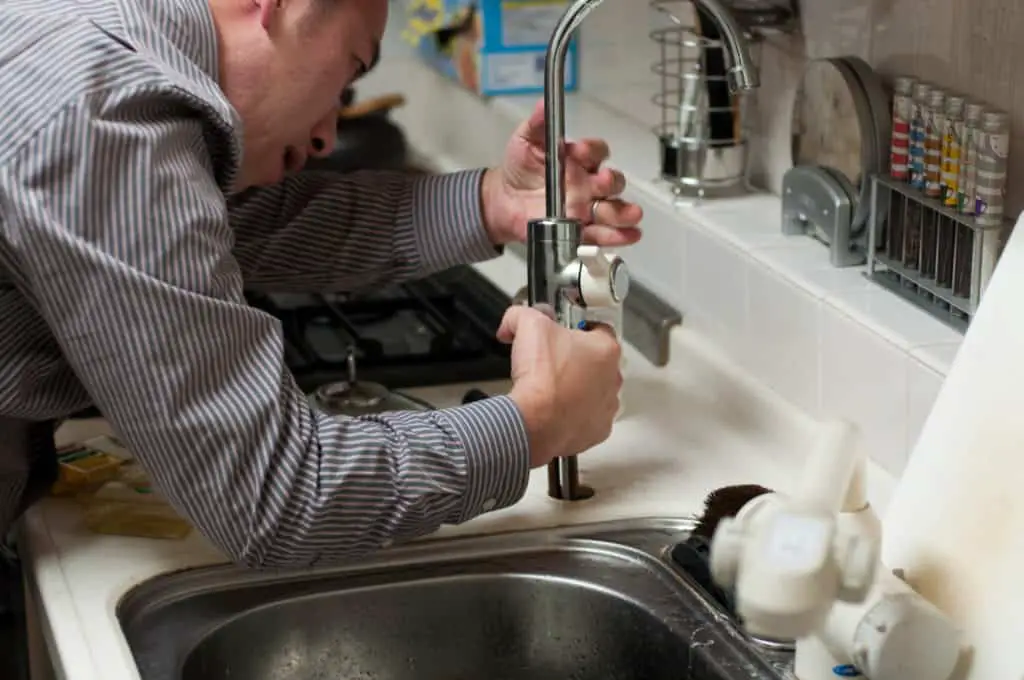
Owning apartments is like owning many small homes. There are always going to be maintenance issues that you are going to have to address. It is an absolute must that landlords create a plan to handle maintenance expenses.
This plan needs to address not only how the maintenance is done, but how much of your budget you should expect to spend each year.
Control Costs
So, how much of your annual income should you be expecting to spend each year on your unit? There are several different metrics you can use to get a good gauge for what you are going to be looking at each year for expenses.
The first good rule of thumb is to spend around 1.5x the monthly rate you charge for rent on the unit for ongoing maintenance. The second is to budget around 1% of the total value of a unit. And the third method is to plan on around $1 per square foot of the apartment.
Each method comes out approximately the same. They aren’t identical, so feel free to use whatever method is appropriate and easy to use for your complex, but none of the methods vary too far from each other in the relative amount of money spent.
The easiest method to use and calculate is the 1.5x Monthly Rate Method, so let’s take a quick look at how that would play out.
With this method, if you have an apartment that you are renting out for $1,000/month, this means that you can expect to spend around $1,500 per year on maintenance issues. This can range from things like leaky faucets to replacing some fixtures, to anything that is normal wear and tear that need to be taken care of.
And remember, this amount isn’t any of the costs that you are going to incur when the tenant moves in or moves out or things that are meant to be covered by the tenant’s security deposit. This is just the cost you are going to be spending on maintenance during the time they are occupying the unit.
But what happens when you are forced to replace the carpet in an entire unit to make it habitable for the next tenant? A major expense like this can cost significantly more than you have budgeted for your entire year!
This is why creating a budgeting plan specifically for maintenance is so crucial to operating your units. If you don’t have this money set aside for these expenses, you can quickly find yourself in a deep financial shortfall.
Many times, an apartment will go a significant period of time with no serious maintenance or repair issues. This means you must set aside that money for future repairs because be assured…… they will happen.
For many complexes, having a separate bank account works extremely well for this eventuality. This way, money can be allocated and set aside for maintenance issues for the entire complex. If you have 100 units renting for $1,000 apiece each month, then that means you are going to be spending around $150,000 per year on simply keeping things working.
Every unit is going to have its own unique timetable and schedule for repairs. Some units that are used very lightly by good renters may go years before anything needs to be done in it whatsoever. While other units that are used hard and beat up may have constant repairs.
The estimates for yearly maintenance allocations are for the total aggregate of all the apartments combined. Essentially, it is the average amount of money you can expect to spend across all of your apartments each year. Putting this money aside monthly to be used simply for maintenance allows the landlord to budget their income more effectively for those inevitable expenses.
Not having the money on had to do necessary expenses can lead to the problems getting worse or the tenants themselves leaving because they are dissatisfied.
A separate account also allows the owner to track how much he is spending per year on maintenance and lets them determine if how the maintenance is being done, either by you yourself or by a maintenance guy, is cost-effective.
Do It Myself?
When something breaks, who will actually fix it? Do you fix it yourself because you are handy with simple repairs, or do you sub-contract that work out? What is going to be the most cost-effective, and time-effective, for your business?
There are a ton of owners that spend way more time than they should fixing anything and everything at their apartment complex, and are very reluctant to hire the work out to outside professionals. Much of this mentality comes from a cost standpoint.
Landlords are in the business of owning apartments because they want to make money, and if these repairs largely fall within their skill set, they tend to want to do them themselves to save money going out.
But this doesn’t mean that simply because you can do something that you necessarily should do something. Your time is also worth money. How many apartments do you have? Generally, the more scaled up your operation is, the more cost-effective it is to hire out the repairs.
If you have only a few dozen units, then your margins are more likely to be tighter and saving money wherever you’re able can bean the difference between a year in the red or in the black.
A good rule of thumb is if you have more than 35 apartments, you should probably have a full-time handyman either on-site or on-call whenever you need it. This means being able to fix a clogged sink in the middle of the night. You need a solution that isn’t going to be a $75 service call plus labor, and you yourself don’t want to be leaving your family and going over at random times to fix those simple things.
Hiring the right person for this job is the most important aspect of having an on-site handyman. Typically, the landlord makes an agreement with the handyman that includes not only compensation but also lodging. This way, the handyman’s lodging is taken care of, and you have someone that is on-site most of the time.
Finally, all your tenants could care less if you personally do the repairs or if you have someone else get them done. They just want the repair done. Regardless of whether or not you have the technical prowess and expertise to handle a repair, if you have a large number of units, you can easily become overwhelmed, the repairs can pile up, and you can have a bunch of unhappy tenants on your hand. And your business is actually keeping and maintaining tenants, not being a handyman.
Make sure if you are going to do some of these repairs, that they are worth your time and money to do.

Respond Immediately
One of the biggest reasons that tenants choose to move to a different apartment is because of maintenance issues. They feel that either things are never fixed or that they aren’t fixed quickly enough. And as mentioned before, your entire business depends on tenants being happy where they are living for a long period of time, so it is literally your job to make this happen.
Therefore, an on-site maintenance guy can be the best solution for making most repairs. The tenants can call the number of the maintenance guy directly and he can take care of the problem promptly.
Leaving a problem to simmer because you either don’t have time or are bogged down with other seemingly more pressing issues can simply exacerbate the situation.
If there is a leak somewhere, it can seep into the flooring and damage the surrounding cabinets and appliances as well as the structure of the floor or ceiling as well. A leak can easily turn into something much more complicated if not handled promptly.
Handling these issues, whether you think they are trivial or not, is important in keeping up the structural integrity of the apartment complex as a whole. If you cannot handle the workload that comes with repairs and maintenance, then it will be to your advantage to hire a maintenance guy.
What Is The Owner Responsible For?
Now that you are saving this money and putting enough aside every month, what exactly are you spending it on?
Obviously, major repairs, especially those that are the result of normal wear and tear are the responsibility of the landlord. But there are many situations where it is the obligation of the tenant living in the apartment to rectify.
Replacing light bulbs and batteries and fixtures are phone calls that maintenance people get requests for all the time. These all cost time and money and these are things that they should be undertaken by the tenant themselves.
Preventative maintenance is another thing altogether. Every few months furnace filters need to be replaced, as well as the batteries in the smoke detectors. While it technically should be the responsibility of the tenant to replace these things, it can be both easier and protect the investment of the owner to just do these things themselves.
Set up a maintenance schedule that includes these things as a normal part of the year. Your manager or maintenance guy should take these things around to every apartment as a rotation on the schedule. This is a cheap and relatively easy way to maintain the longevity of major pieces of equipment.
Should I Just Buy New Equipment?
There are typically two types of mentalities that landlords have. One type wants to fix everything no matter how old and worn it is, and others want to replace items because today major appliances are relatively cheaper than what they were 20 or 30 years ago. Many times, it is just cheaper to replace something outright then even to have someone come and take a look at it.
There is no set answer to the question of repair or replace. Going far to one side and being inflexible to either stance can mean bad news. Owners need to be flexible and take each situation as it comes. Sometimes, simply because something can be fixed, doesn’t mean it is cost or time effective to do so.
Push your maintenance guy to fix those things that he can fix cheaply and easily. For the rest, know your local supply stores. Who is going to give you the best deal on appliances because you buy a lot of them each year? If you don’t have these deals set up with a preferred supplier, this is something you need to be doing.
Not only will you get a better deal than just buying at retail price, you will many times get very favorable payment terms in exchange for your business. Also, repeat business can also mean favors such as free installation or delivery simply due to the quantity of business you do with them.
On the other hand, it may behoove you to buy your appliances at a place like Menards and have them in storage there. When your manager or maintenance guy says they need a new appliance, send them after it or simply have it delivered straight to the apartment.
Many times, simply replacing something you buy from a cost-effective supplier can be the quick and easy solution, but again, treat every situation as its own.
Plan For The Unexpected
If something can happen, it probably will happen. There is nothing this applies to more than with unexpected repairs. And unexpected repairs mean unexpected expenses.
Therefore, it is key to create your own maintenance plan, how you are going to fund it, and where the money is going to come from. If you have a few units that haven’t had maintenance done in years, you can be guaranteed that repairs are going to come, and more than likely there are going to be multiple repairs in a short period of time. You need to have the money put aside for this eventuality.
These repairs are going to happen. Things break down as they are used, that is why continual and preventative maintenance should be at the forefront of your concerns as a landlord.
Make a plan. Know how you are going to take care of both normal and abnormal repairs. Are you going to do it or do you have a maintenance guy on-site who can take care of it? Are you going to replace that old refrigerator or have someone come take a look at it?
Being able to know what you are going to do in these situations is going to mean the difference between both maintaining your property and your profitability.
